9 Period-Care Brands That Have Plenty of Tampons in Stock and Are Committed To Keeping It That Way


As of late, there seems to be a new reason every day that simply existing in the United States while having a uterus feels like a burden to bear. In May, a leaked draft opinion revealed that the Supreme Court plans to overturn Roe v. Wade—and, by extension, remove pregnant peoples’ right to bodily autonomy, among other far-reaching implications. Then, supply-chain issues coupled with an infant-formula recall snowballed into a formula shortage that’s making it difficult for many parents to safely feed their babies. And now, tampons are the latest victim of the supply-chain mess, rounding out a trifecta of limitations that leaves few uterus-having people (whether pregnant, parenting, or menstruating) unaffected. Thankfully, certain direct-to-consumer tampon brands are working to ensure the period-care staple remains available, despite logistical obstacles.
In many cases, the specific tampon brands that have available stock have been able to get around a number of supply-chain issues because they utilize different materials than the drugstore brands—and typically, more sustainable materials at that (win, win). For example, period-care companies like Viv, Flo, and August use materials like organic cotton and bamboo, corn fiber, and sugarcane-derived applicators in their pads and tampons (as opposed to plastic), which has insulated their production processes from many plastic-centric supply-chain issues.
“Inflation on many of the plastic composite parts in pads, for example, is as much as 20 percent,” says Nick Jain, co-founder and COO at August. “As a commodity at such a low price point, a 20 percent increase in raw-material cost either forces a company to increase prices or take a hit on product margins, which limits their cash flow.” In that scenario, it also becomes tougher for a company to hold a bunch of inventory in stock (already an expensive thing to do), adds Jain. And now, the companies that chose not to hold that inventory are facing significant shortages, as plastic becomes more challenging to procure.
“In a time where things feel especially fragile, it's more important than ever to have our basic biological needs covered.” —Tara Chandra, co-founder of period-care company Flo
But while these differences in raw materials have certainly made it easier from the outset for some eco tampon brands to keep their product available, it’s not to say they’ve all been immune to other supply-chain issues, like staffing shortages and congested ports. And these logistical holdups might’ve very well still affected their ability to keep product well-stocked, had it not been for their deep-rooted values to protect menstruators at every turn. “We’ve been acutely dialed in to building our supply over time, and our operations team has made it a top priority from the beginning of this year to secure weeks of supply for our menstrual-care products,” says Beatrice Dixon, CEO of intimate-care brand The Honey Pot Co.
{{post.sponsorText}}
Simply acknowledging that these products are essential has also led many smaller tampon companies to structure their supply chains around ensuring availability, often by placing large orders in advance (at whatever cost necessary)—and particularly right now, given the bleak reproductive-health landscape. “In a time where things feel especially fragile, where we're struggling to get our hands on formula and our reproductive rights are at risk, it's more important than ever to have our basic biological needs covered,” says Tara Chandra, co-founder of Flo.
It's worth pointing out that because a number of the materials used in the available tampons are more premium than those in their drugstore counterparts, they may come in at a higher price point per box. But, for folks who have a flexible spending account (FSA) or health savings account (HSA), most are eligible to expense, thanks to the CARES Act. Below, find the tampon brands taking special care to support menstruators with readily available products for this basic, biological function.
9 online tampon brands with lots of stock available right now

Founded last year as a gender-inclusive, eco-friendly, and financially accessible alternative to traditional period-care brands, August launched amid the pandemic. Because of that timing, founders Nadya Okamoto and Nick Jain were ready to incorporate resiliency into their supply chain from the start. “We made the decision to keep four to six months of inventory on hand at any given time, so that when the production cycles slow down [as they are now], we have reserve stock that we can sell through,” says Jain.
The tampons, which cost $8 for a box of 18 tampons, are made with 100-percent organic cotton (including the string), and an extra-long BPA-free plastic applicator that’s recyclable when washed off.
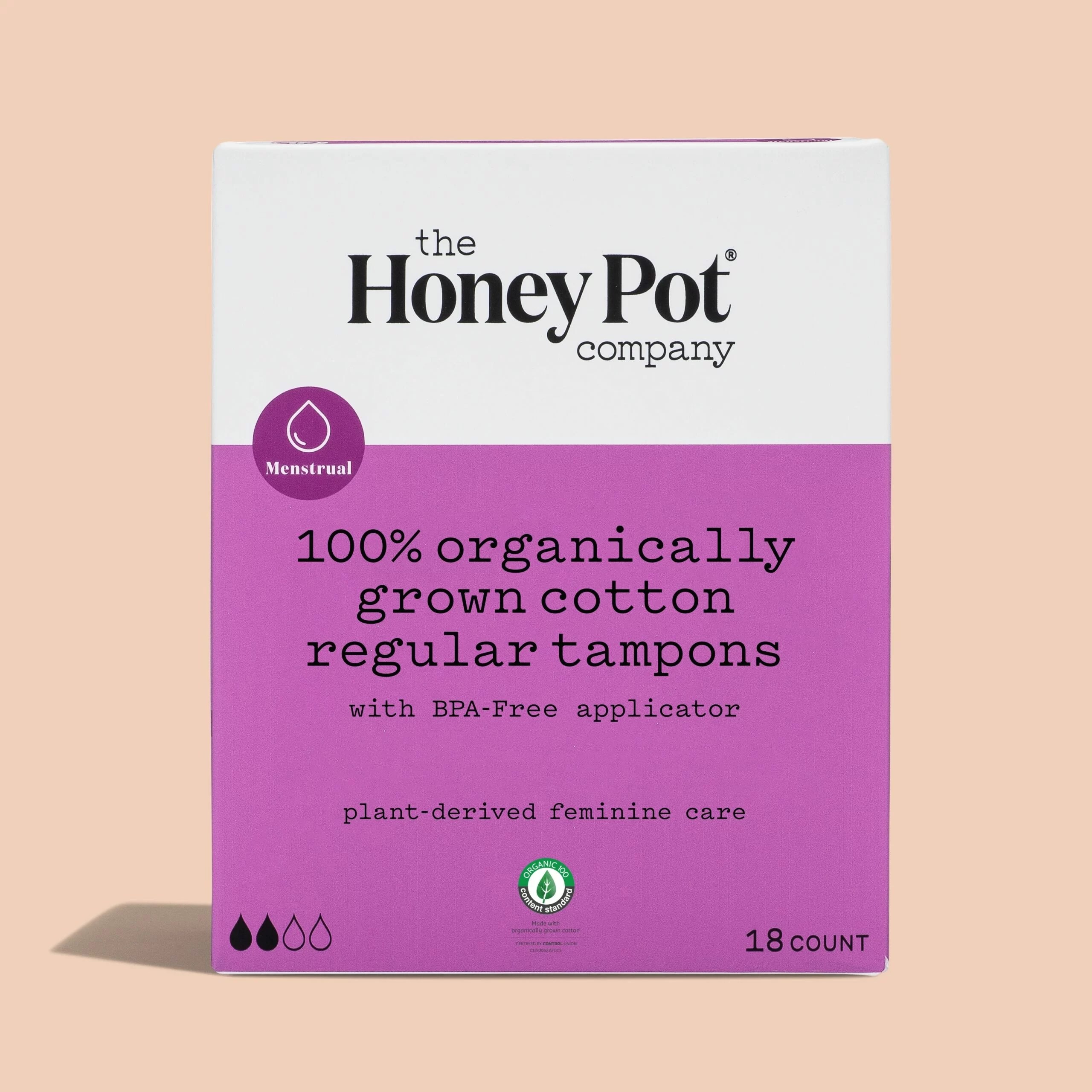
Part of why you can always count on The Honey Pot Co. to have tampons in stock is because of the many different varieties they offer “for differing needs and humans,” says Dixon, ranging from regular to super absorbency to compact and even compact super-plus. They’re all made with certified organic cotton and a BPA-free applicator.
Though the brand also sells a variety of other menstrual-care products, including a menstrual cup, Dixon is committed to always keeping tampons, at $12 for a box of 18, in stock. “Much like pads, tampons have been at the core of menstrual products for much of the last century, so while providing new options is great, you cannot ignore the cultural implications of such a key product as a tampon,” she says.
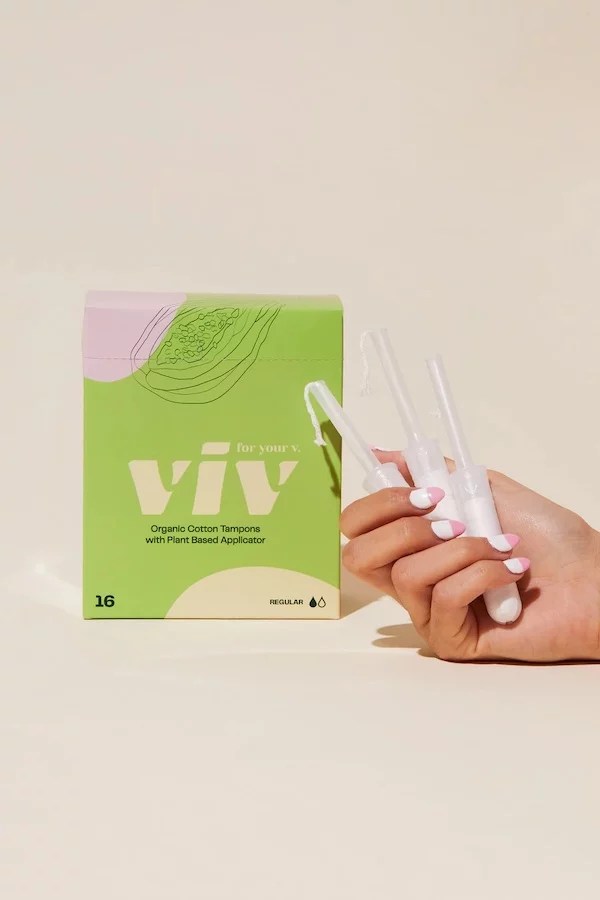
Viv tampons, which come as a box of 16 tampons for $9, have the distinction of being fully plant-based, thanks not only to the organic-cotton core, but also, a sugarcane-derived (rather than plastic) applicator. (Notably, the company’s pads and liners are made with bamboo and corn fiber.) “Because our material-sourcing and manufacturing processes look very different from those of traditional big-box brands, we’ve been able to stay secure in our supply chain,” says Katie Diasti, founder and CEO.
Given that Diasti’s goal is equally centered on reducing period stigma as it is on minimizing the environmental impact of periods, she’s also working to build a community around uplifting menstruators of all kinds—especially in the current climate. “The tampon shortage is not just a headline or trend; it will directly impact the most marginalized menstruators and is a reflection of the ways in which menstrual health has been neglected and hush-hush for far too long,” she says.

Making safe period-care products available to all and busting period poverty has been at the heart of Cora’s purpose since the company was founded in 2014. And according to chief marketing officer Dana Cohen, that won’t be changing anytime soon: “As a female-owned brand, we believe that no matter what, menstruators need access to period-care products.”
At the moment, Cora, which sells boxes of 16 tampons for $10, has plenty of available stock (both through the Cora website and across retailers like Amazon), though Cohen notes that they anticipate some issues with demand for their organic-cotton tampons in the coming months. In the meantime, though, Cohen says Cora has also seen increased interest in the brand’s reusable period products—particularly the period disc, which launched last year and which she suspects may help offset some of the demand for the brand’s tampons.
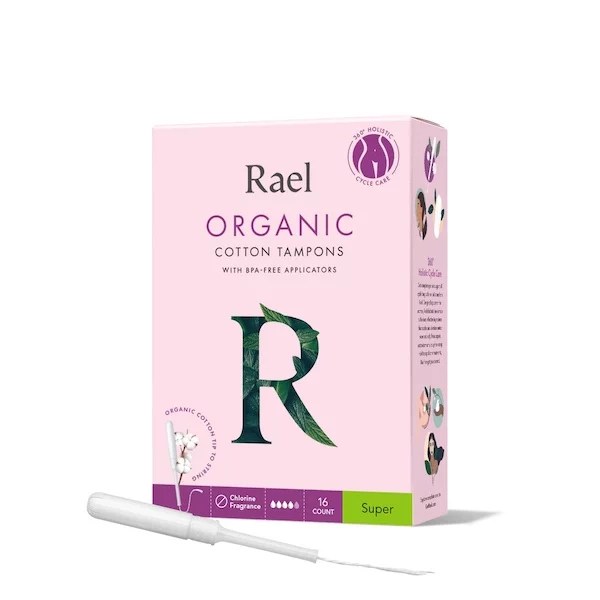
Made with tip-to-string organic cotton, Rael’s tampons, $7 for 16, also have an organic-cotton protective “veil” to prevent fabric from shedding within the vagina and minimize leaks. And this full-organic construction (plus BPA-free plastic applicator) has also helped the brand maintain good stock amid the shortage, as did planning in advance.
“When the supply-chain problem started happening [over the past couple years], we foresaw the issues that many brands are facing now and made sure to ramp up the number of products we typically order for production,” says Yanghee Paik, CEO and co-founder.

A biodegradable cardboard applicator (and biodegradable packaging to boot) makes DeoDoc organic-cotton tampons, $8 for 14 or 16 tampons depending on absorbency, particularly eco-conscious. And like the Rael tampons above, they sport an extra layer of cotton netting around the cotton core to ensure there’s no shedding or irritation to the vaginal wall—a particular goal for the gynecologist behind the brand, Gunvor Ekman-Ordeberg, MD.
Similar to the founders of Rael and The Honey Pot Co., cofounder of DeoDoc Hadieh Asadi, MD, says she chose to make larger orders several months back in order to avoid running out of stock. “As a female-founded company, we are in power to choose what we would like to focus on, and for us, women’s health and women’s needs will always be of the highest priority,” says Dr. Asadi.
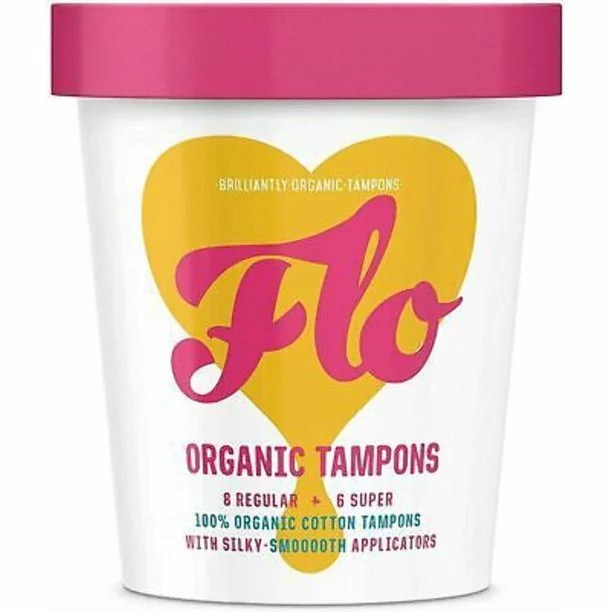
As with Viv, Flo organic-cotton tampons, $16 for 14 tampons, replace a typical plastic applicator with a sugarcane-derived one in order to be wholly plant-based, which has “helped us avoid many of the shortages that mainstream brands are facing,” says Chandra. Because the brand recently launched at Target, though, she anticipates running more quickly through their stock, and as a result, is now ramping up production.
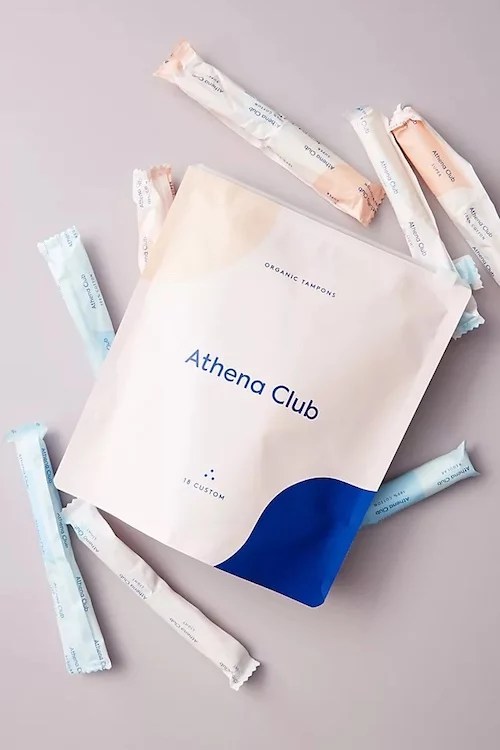
With both fully organic-cotton and organic-rayon blend tampons, Athena Club, which sells 18 tampons for $8, has options depending on what you’re going for. The variety has also helped the company keep ample stock available, even now. “We plan ahead with our suppliers, and work diligently to ensure we never stock out—especially for our period-care products and particularly because we are a subscription-based business,” says Maria Desmarais, cofounder and co-CEO of Athena Club, which also makes a range of other personal-care products.

Because Blume’s organic period-care products are sold at 600-plus Ulta locations across the country (alongside the brand’s beauty products) and on Ulta’s site, CEO and co-founder Taran Ghatrora was conscious of supply-chain issues before the brand even really started, and then planned accordingly.
“We have effectively projected our period product supply through the remainder of this year,” says Ghatrora, “and we’re confident we won’t be selling out of our supply.” The tampons themselves, 16 for $10, are made of 100-percent organic cotton and are woven for max absorbency, with a soft outer layer and a dense, absorbent inner one.
Loading More Posts...